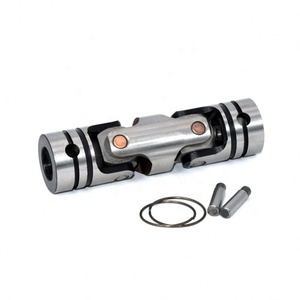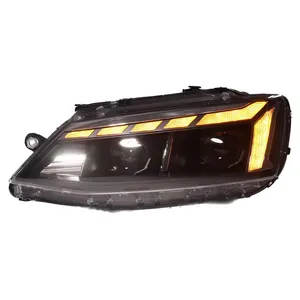Popular in your industry























































































































































































Top categories
About joint yoke
Understanding Joint Yokes
A joint yoke is a fundamental component in the realm of mechanical engineering, pivotal for transmitting rotational force in a flexible manner. This integral part of a vehicle's drivetrain system, often connected to a universal joint yoke, allows for variations in the alignment of the drive and driven shafts.
Types and Applications
The versatility of joint yokes is evident in their various types, such as the u joint yoke and u joint flange yoke, each serving distinct purposes across different vehicles. From the robust dana 60 1350 yoke designed for heavy-duty applications to the precision of a honda 40300 hr3 a20 for specific models, these components are tailored to meet diverse mechanical demands. The ford 9 1350 yoke and ford 8.8 1310 yoke are examples of model-specific yokes that ensure compatibility and performance.
Features and Materials
Joint yokes are crafted from materials that ensure durability and strength, such as forged steel or aluminum, to withstand the stresses of torque transmission. The np205 1410 yoke exemplifies a design that accommodates high torque loads, while a 1410 cv driveshaft showcases the capability to maintain angular velocity. Features like the 1350 u bolt design allow for secure attachment, ensuring reliability in performance.
Advantages of Quality Joint Yokes
The advantages of utilizing well-constructed joint yokes include improved vehicular performance and reduced maintenance needs. A pto u joint yoke can offer seamless power take-off functionality, vital for agricultural or industrial machinery. The 1310 driveshaft yoke is known for its balance and fitment, which contribute to the overall efficiency of the drivetrain system.
Selection Considerations
When selecting a joint yoke, considerations such as size, spline count, and compatibility are crucial. For instance, a 26 spline 1350 yoke is specific to applications requiring a particular spline interface. It is essential to match the joint yoke to the universal joint, ensuring a proper fit for optimal function and longevity.
Conclusion
In conclusion, the selection of a suitable joint yoke is a critical decision that impacts the functionality and efficiency of a vehicle's drivetrain. By understanding the different types, applications, and features of joint yokes, one can make an informed choice that aligns with their mechanical requirements.

















































